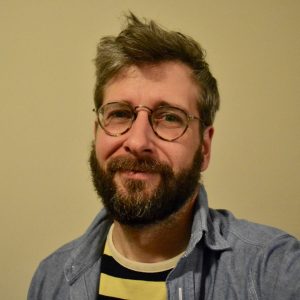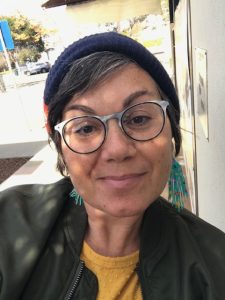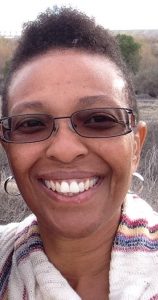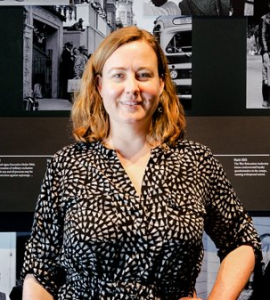Expanding the Focus: Community-Informed Preservation and Interpretation
An increasing number of established historic sites and preservation agencies are recognizing that their programs have focused narrowly on traditional–and often elite–narratives and types of places that receive official recognition. As heritage institutions seek to tell more diverse stories in historic environments, their efforts are most successful when they build meaningful relationships with community partners. This webinar will present two case studies of how such institutions have developed partnerships to expand the range of community stories that they work to preserve. Staff from the Presidio Trust and the Adoption Museum Project will share their collaboration with community members on an exhibition, Operation Babylift: Perspectives & Legacies, that enriches the scope of the Presidio’s interpretive programs to include the legacies of the Vietnam War. We will then discuss Rita Cofield's work with members of the Watts neighborhood in South Los Angeles to protect the Black-centered programs of the Watts Happening Cultural Center. The case studies will highlight the challenges and successes of building partnerships that bring new voices to institutional platforms for defining and protecting community heritage.
Moderator
 Jon Rusch, Preservation Planner, Architectural Resources Group. Jon Rusch is a historian and historic preservation planner with more than a decade of professional experience supporting complex documentation, evaluation, and planning projects for historic buildings and cultural landscapes, primarily in the San Francisco Bay Area and the greater West Coast region. His work has spanned the United States—with a focus on the West Coast—and has involved preparing context studies, conducting surveys, and evaluating a wide range of resource types in urban and rural settings. His areas of expertise include cultural landscape documentation, post-World War II resources, creative mitigation strategies, and socially and culturally significant sites. A native of South Dakota, Jon holds an M.A. in historic preservation planning from Cornell University.
Jon Rusch, Preservation Planner, Architectural Resources Group. Jon Rusch is a historian and historic preservation planner with more than a decade of professional experience supporting complex documentation, evaluation, and planning projects for historic buildings and cultural landscapes, primarily in the San Francisco Bay Area and the greater West Coast region. His work has spanned the United States—with a focus on the West Coast—and has involved preparing context studies, conducting surveys, and evaluating a wide range of resource types in urban and rural settings. His areas of expertise include cultural landscape documentation, post-World War II resources, creative mitigation strategies, and socially and culturally significant sites. A native of South Dakota, Jon holds an M.A. in historic preservation planning from Cornell University.
Panelists
 Laura Callen organizes communities towards liberatory futures. For the last four years, she has been supporting other non-Native people to live in right relationship with the Lisjan Ohlone people in the territory of Huchiun where she lives (aka San Francisco East Bay). Prior to that, Laura founded and directed the Adoption Museum Project. This culture change project used arts and culture to explore the U.S. practice of adoption through a social justice lens, in order to create a more truthful and healing narrative of adoption. Laura was separated from her birth family as an infant through the U.S. domestic private adoption system.
Laura Callen organizes communities towards liberatory futures. For the last four years, she has been supporting other non-Native people to live in right relationship with the Lisjan Ohlone people in the territory of Huchiun where she lives (aka San Francisco East Bay). Prior to that, Laura founded and directed the Adoption Museum Project. This culture change project used arts and culture to explore the U.S. practice of adoption through a social justice lens, in order to create a more truthful and healing narrative of adoption. Laura was separated from her birth family as an infant through the U.S. domestic private adoption system.
 Rita Cofield, Getty Conservation Institute / Friends at Mafundi. Rita received her BA in Architecture and Planning from Howard University and a Masters in Heritage Conservation from the University of Southern California. She free-lances as a cultural resource manager and Public Historian with valuable experience in community-based projects. She is passionate about finding ways to re-insert multiple perspectives into the larger narratives of our history. She enjoys activities and projects that foster innovation when it comes to caring for historic resources in underserved neighborhoods. She also feels a moral responsibility to expose the youth in her community of Watts to preservation education, hands-on training in building conservation, and its rich history as a means to community engagement and pride.
Rita Cofield, Getty Conservation Institute / Friends at Mafundi. Rita received her BA in Architecture and Planning from Howard University and a Masters in Heritage Conservation from the University of Southern California. She free-lances as a cultural resource manager and Public Historian with valuable experience in community-based projects. She is passionate about finding ways to re-insert multiple perspectives into the larger narratives of our history. She enjoys activities and projects that foster innovation when it comes to caring for historic resources in underserved neighborhoods. She also feels a moral responsibility to expose the youth in her community of Watts to preservation education, hands-on training in building conservation, and its rich history as a means to community engagement and pride.
 Liz Melicker is an experienced museum professional with expertise in curatorial practice, including creative direction, research, content development, and collections management. She is the Curator for the Presidio Trust in San Francisco, in the traditional territory of the Yelamu, a local tribe of Ramaytush Ohlone. Liz leads the Trust’s curation program, preserving and sharing the Presidio’s collections with current and future generations. Public exhibitions at the historic Officers’ Club highlight these collections, and invite the public to consider how the park’s history is relevant today through participatory, co-created experiences. Liz has led award-winning exhibition projects recognized by the American Alliance of Museums and the Western Museums Association, including Operation Babylift: Perspectives & Legacies and EXCLUSION: The Presidio’s Role in World War II Japanese American Incarceration. She holds an M.A. in Anthropology from Stanford University, and prior to joining the Presidio Trust in 2005, worked in cultural resource management in California and Hawai’i, her home state.
Liz Melicker is an experienced museum professional with expertise in curatorial practice, including creative direction, research, content development, and collections management. She is the Curator for the Presidio Trust in San Francisco, in the traditional territory of the Yelamu, a local tribe of Ramaytush Ohlone. Liz leads the Trust’s curation program, preserving and sharing the Presidio’s collections with current and future generations. Public exhibitions at the historic Officers’ Club highlight these collections, and invite the public to consider how the park’s history is relevant today through participatory, co-created experiences. Liz has led award-winning exhibition projects recognized by the American Alliance of Museums and the Western Museums Association, including Operation Babylift: Perspectives & Legacies and EXCLUSION: The Presidio’s Role in World War II Japanese American Incarceration. She holds an M.A. in Anthropology from Stanford University, and prior to joining the Presidio Trust in 2005, worked in cultural resource management in California and Hawai’i, her home state.
